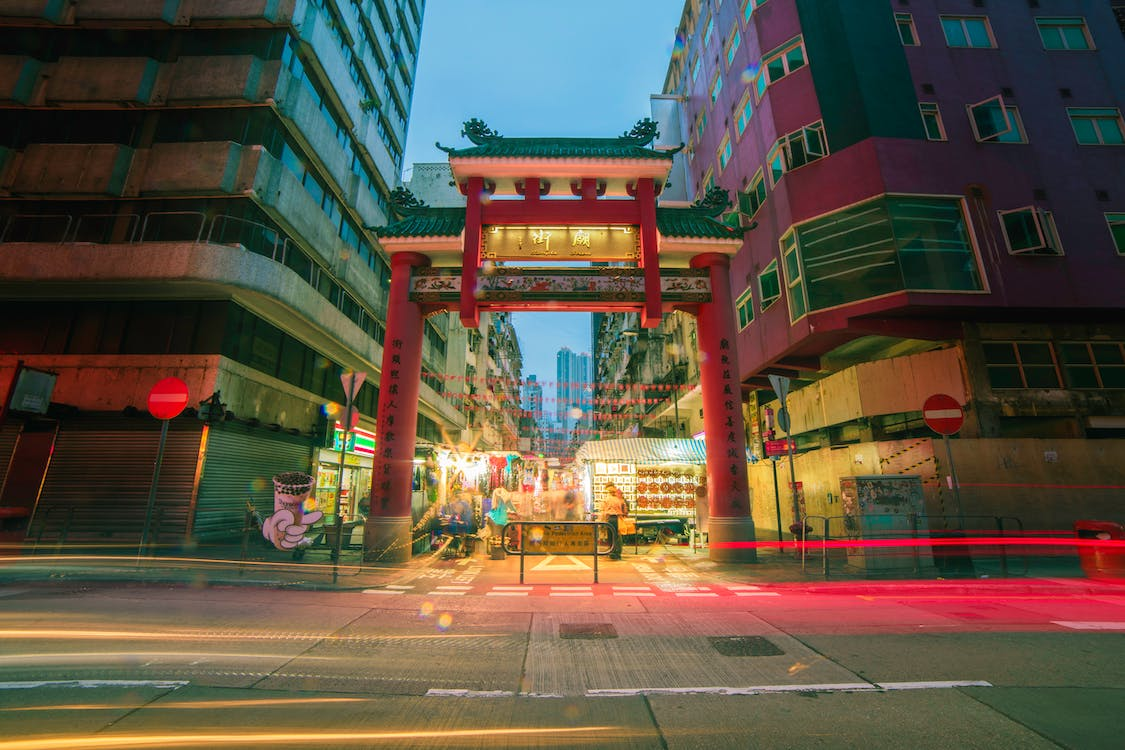Apply to a foreign university with confidence
- Properly fulfilled documents
- Perfect motivation letter
- Support from a personal mentor
- Offers from several universities
Article score: 5 out of 5 (1 review)
Hong Kong universities successfully combine the Western education system and Eastern culture and philosophy. We'll tell you what are the pros and cons of local universities, how to enter there and what it is like to study there.
Free consultation



Hong Kong universities successfully combine Western education and Eastern culture and philosophy. The goal of the city government is to make the region the educational center of Asia. This is made possible thanks to the large funding of higher education institutions, strong teaching staff, and the academic freedom and autonomy of universities. This bore fruit: Hong Kong universities consistently can be found in the top 100 of world ratings, they graduate in-demand specialists and are actively conducting research activities.
Items 1-6 of 27
Advanced search
| Program | Age | Duration | Min. cost | Avg. cost | Min. language level | Exams |
|---|---|---|---|---|---|---|
| Foundation | 17+ | 1-2 years | 4,900 USD / year | 15,473 USD/year | B2 | IELTS 5.5 |
| Bachelor's | 17+ | 3-4 years | 11,863 USD / year | 18,052 USD/year | B2 | TOEFL 79 / IELTS 6.0 |
| MBA | 20+ | 1-2 years | 22,178 USD/year | 73,496 USD/year | C1 | TOEFL 80 / IELTS 6.5 |
| Master's | 20+ | 1-3 years | 5,416 USD/year | 19,341 USD/year | C1 | TOEFL 80 / IELTS 6.5 |
| Doctoral | 20+ | 2-4 years | 10,857 USD/year | 32,235 USD/year | C1 | TOEFL 80 / IELTS 6.5 |
All data must be specified on the websites of universities.
To enter Hong Kong universities, an applicant needs to research the universities and choose the appropriate program. Since educational institutions establish the admission requirements themselves, they must be checked on the official websites of universities. The admission committee evaluates candidates based on grades, exam results, motivation letters, interviews, and other achievements.
Universities usually require the following documents:
Documents must be translated into English and notarized. It is worth noting that if an applicant studied in English, there is no need to take language exams.
Higher educational institutions of Hong Kong are divided into:
In Hong Kong, there are more than 22 higher education institutions. In addition to bachelor’s, master’s, and doctoral programs, students in Hong Kong's institutes can receive an associate's degree and a Higher Diploma. Already working adults study in short term programs of continuing education.
Vocational qualifications or sub-degree in Hong Kong can be obtained from the Vocational Training Council (VTC), Hong Kong Academy of Performing Arts, and other higher education institutions and colleges.
VTC is the largest association of institutions providing vocational education. The Council includes 13 schools in Hong Kong and annually educates about 250,000 students.
Programs are offered to high school graduates. Areas of study are diverse, for example, applied sciences, business administration, social services, design, engineering, hospitality, tourism, maritime studies, information technologies, and culinary art.
VTC curricula balance theory and practice, vocational, and general education. The institutes work closely with local and international firms and provide students with internships and integrated training. Thus, students graduated as specialists who are ready to work. It is worth noting that on average 90% of holders of VTC Higher Diplomas are successfully employed[13]. In addition to being able to work, sub-degree programs allow graduates to continue their studies at a bachelor's cycle.
VTC programs are accredited by the Hong Kong Accreditation Council for Academic and Vocational Qualifications and are recognized internationally. In addition, they offer opportunities for studying abroad and participating in international events. About 7,000 students annually go on study trips, contests, and internships abroad.
VTC has an international development office helping international students with documents, visas, and extracurricular issues. The Council’s website provides more information for international students.
Professional programs are also run by private colleges such as the Caritas Institute of Higher Education, Centennial College, and Gratia Christian College. Find other institutions with sub-degree programs in Hong Kong by going through this list.
Public universities are sponsored by the University Grants Committee or government funds. UGC is a body advising Hong Kong authorities on the financing and development of higher education in the region. It subsidizes 8 universities:
| University | Fields of study |
|---|---|
| City University of Hong Kong | Business, Arts and Social Sciences, Science and Engineering, Veterinary Medicine, Law, Media studies, Energy and the Environment |
| Hong Kong Baptist University | Arts, natural and social sciences, business school, Chinese medicine, communications and visual arts |
| Lingnan University | Arts, Humanities, Business and Social Sciences |
| The Chinese University of Hong Kong | Arts, business administration, education, engineering, law, medicine, natural and social sciences |
| Hong Kong University of Education | Humanities, Education and Social Sciences |
| Hong Kong Polytechnic University | Programs in applied and medical sciences, business, software engineering,civil engineering, fashion, design, tourism, languages and social sciences |
| Hong Kong University of Science and Technology | Schools of Science, Technology, Business and Management, Humanities and Social Sciences |
| University of Hong Kong | Architecture, arts, business and economics, education, engineering, law, medicine, natural and social sciences |
The Hong Kong Academy of Performing Arts also receives government funding, but is not a university under the Hong Kong law. The Academy implements art programs, which usually last two years.
There are only 2 private universities in Hong Kong: Hang Seng University of Hong Kong and Hong Kong Shue Yan University. But there are over 150 self-funded programs at bachelor's cycle and 300 at sub-degree level (Associate's degree or Higher Diploma). They are offered in more than 30 educational institutions, both at private institutes and colleges, and state universities.
Over the past decade, Hong Kong saw an increase in the number of private educational institutions, and this has affected the growth of education. However, it is believed that private higher education institutions in Hong Kong have a harder time staying afloat compared to public ones. For example, after many years of low attendance and financial difficulties, Centennial College decided not to accept students in 2019. The overall image of private educational institutions in society is also not positive. They are perceived as institutions that neglect quality for profit, especially the value of sub-degree programs is being questioned[8].
| University | Fields of study |
| Caritas Francis Hsu College | Arts, social sciences and nursing |
| Centennial College | Arts, accounting and social sciences |
| Chu Hai College of Higher Education | Arts and social sciences, business, science, and technology |
| Gratia Christian College | Business, social sciences, and primary education specialists |
| Hang Seng University of Hong Kong | Faculties of business, communication, social and liberal arts |
| HKCT Hong Kong College of Technology | Business, social sciences and accounting |
| Hong Kong Nang Yan College of Higher Education | Administration and social work |
| Hong Kong Shue Yan University | Liberal arts, social sciences, and commerce |
| Technological and Higher Education Institute of Hong Kong | Design and environmental design, hospitality management, science, and technology |
| Open University of Hong Kong | Arts and social sciences, business and management, education and linguistics, nursing and healthcare, science and technology |
| Yew Chung College of Early Childhood Education | Early childhood education programs |
Items 1-6 of 8
Advanced searchIt is worth noting that CUHK has been partnering with Shanghai universities for research cooperation and academic exchange for quite a long time.
There are no free universities in Hong Kong. However, universities, the Hong Kong SAR government and external organizations provide financial assistance to outstanding students at a bachelor’s/master’s cycle, less often — doctoral. Examples of such scholarships would be, the HKSAR Government Scholarship,The Belt and Road Scholarship, Private Higher Education Fund scholarships, and the Hong Kong PhD scholarship program. Grants partially or fully cover the cost of education, and a fellowship program for doctoral students provides an additional amount for study trips. Also, on the websites of universities there are separate sections on grants and financial assistance, which describe current opportunities for applicants in greater detail.
60+ countries
we work with
$1,000,000 saved
by students through scholarships
6,400 offers
our students got